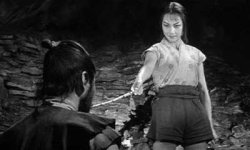I re-watched Priscilla Queen of the dessert yesterday. It's still a 10/10 movie.
I noticed some things about it this time I missed in the 90'ies. It has a fairly tale feel to it. It's not realistic in the least. It's a series of scenes one more absurd than the other, but because the subject matter the audience (ie me) accepts it. It's like being in someone else's fantasy.
None of the three drag queens are played by gay actors. When I saw it back in the day I had no idea. I just took it for a given. It's fascinating to compare the worlds of the 90'ies with today. When that came out the gays and politically correct were high fiving each other over this film and how progressive it was. Today of course it would be an outcry that straight actors were given gay parts.
I still can't understand why the woke have any problems with actors playing stuff they aren't. That's the whole point with acting.
That movie was one of my first experiences of the vast cultural gap between Australia and (the north of) England.
It was released in Australia while I was here as a temporary resident, and in the UK while I was there arranging my Australian permanent residency.
I saw it on both occasions, and the difference in who the audience was was astonishing to me. In Australia, everyone went to see it. It's in large part a celebration of Australia - both the country and the people - so that's not surprising. In the north of England, the audience was comprised of a handful of gay men, and me. I took my mum, to show her this spectacular presentation of the country to which I was emigrating. The only women in the entire cinema were, as far as I could tell, the mothers of men who weren't there alone or with their male partners.
The small-mindedness of the non-gay Yorkshire people in shunning that film confirmed to me that I was making the right choice to leave.
On the whole, Australians (of all sexual preferences) are infinitely more accepting of different sexual preferences than English people. While simultaneously being far more macho (even the women) than the Poms.
But more importantly, Australian audiences could see that this wasn't a film about homosexuality. The three main characters are all transvestites, and certainly all part of the Sydney (Kings Cross/Darlinghurst) queer scene. But only one is unambiguously portrayed as homosexual. Australian audiences (in the capital cities, which make up the vast majority of the total population) are capable of grasping that not everyone who is different, is the same.
It's a terrific movie. And entertainingly explores the very complexities the ignorance of which led Yorkshiremen to avoid it in droves.

